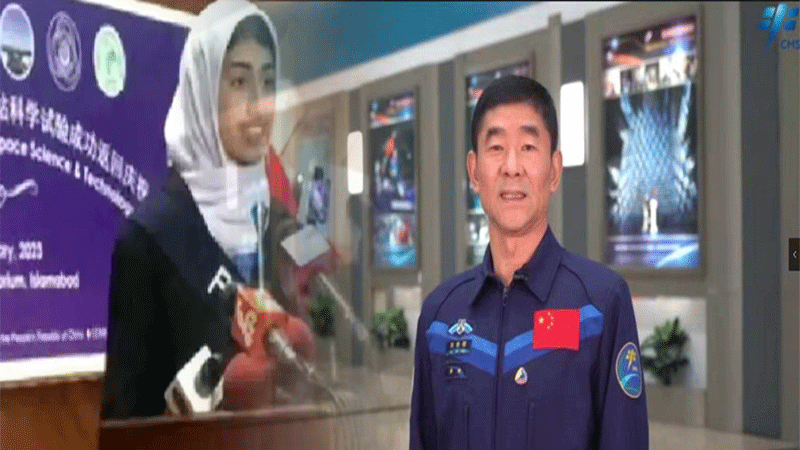China’s Shenzhou 14 mission carried seven different types of seeds from medicinal plants into space. After returning to Earth, they are the subject of additional research.

Aasiya Ismail, a 17-year-old student at Islamabad Model School for Girls, had the opportunity to speak with a Chinese astronaut and ask questions on the ceremony marking the return of Pakistani seeds from the Chinese space station, which took place today at the COMSTECH Auditorium in Islamabad.
According to Aasiya Ismail’s letter, “Nearly ten years have passed since I started studying science. “For me, the study of science is an art form “. She also posed numerous scientific queries about space life and the Pakistan-China space breeding project.
In a video response to the letter, veteran astronaut Liu Boming, who has completed two manned spaceflights and led China’s first spacewalk, says, “I’m so happy to receive your letter and get to know you are interested in science.”
He was sent to space in 2008 along with his coworkers Mr. Zhai Zhigang and Mr. Jing Haipeng. His improvised poem, “Overlooking the Homeland, the Same Global Village, Looking Across the Sun and the Moon, the Same Space City,” was inspired by the shocking experience.
He launched into space once more in 2021 and was among the first astronauts to be stationed on the Chinese Space Station.
Other firsts for China are also accomplished by the Shenzhou 12 manned space mission, including the first long-term astronaut residence, the first manned autonomous rapid rendezvous and docking, and the first extensive orbital testing of controlled bio-protection technology in a regenerative environment.
The extravehicular activity, which gave him the opportunity to view the earth from a larger and wider perspective, stood out to him as the most memorable of them all. He worked hard for 13 years, from the age of 42 to 55, to become a part of China’s first human-robotic arm combination, and it was on this space mission that he achieved his greatest dream.
During ceremony marking the return of seeds to Pakistan, Aasiya Ismail was also given his recommendation to watch the live broadcasting program Tiangong Classroom, which can address many of her inquiries. He claimed that “the Shenzhou 12 mission carried the Pakistani national flag, and the Shenzhou 14 mission carried Pakistani plant seeds, fully demonstrating the profound friendship between China and Pakistan.”
He concluded by encouraging Aasiya Ismail to continue her scientific endeavours with bravery and tenacity and to fulfil her role in fostering cooperation between Pakistan and China.
According to available information, China’s Shenzhou 14 mission carried seven different types of seeds from medicinal plants into space. After returning to Earth, they are the subject of additional research.